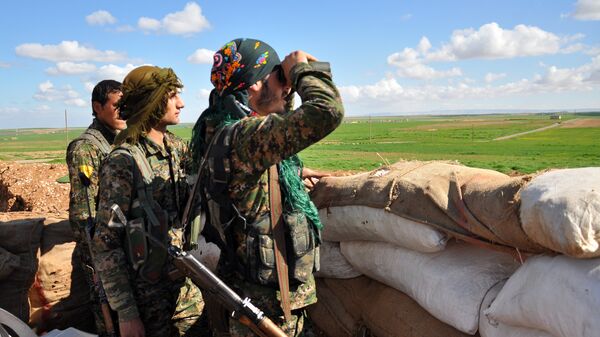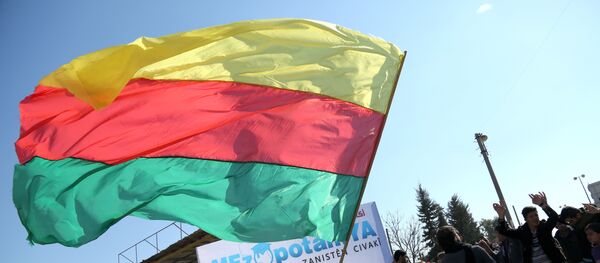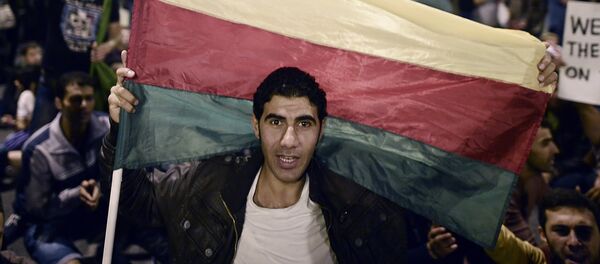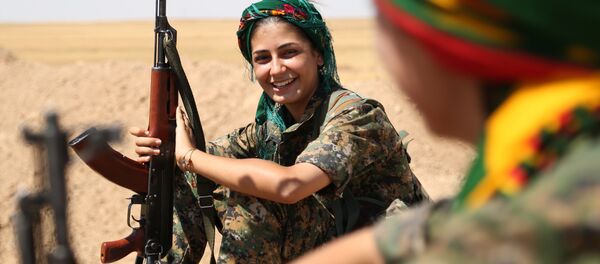Russia continues to advocate involving the Syrian Kurds in the Geneva talks, insisting that the Syrian crisis cannot be solved with the Kurds sidelined.
"The issue of the Kurdish representation still remains acute," Mikhail Bogdanov, Deputy Foreign Minister of the Russian Federation, told the Valdai Discussion Club's conference 'The Middle East: When Will Tomorrow Come?', "We support the idea of involving Kurdish representatives in the talks."
Speaking at the conference, Bakhtiar Amir, Iraq's former Human Rights Minister (2004-2005), drew attention to the historically good relations between Russia and the Kurds. Amir emphasized that the interests of all people and ethnic groups living in Syria should be taken into consideration.
Russian Permanent Representative to the UN Alexei Borodavkin shares a similar stance.
"We have always advocated and continue to advocate the Syrian Kurds' participation in the [Syrian] negotiations. The Kurds in Syria are a large minority, a political force, a capable military force on the ground, and in addition, they are citizens of the Syrian Republic and they have the right to take part in determining their country's fate," Borodavkin told journalists on February 23.
However, the HNC includes just one Kurdish delegate. Needless to say, such a measly representation is regarded as disproportionate by some politicians.
The Kurds were not invited to the Geneva talks which were held in February 2016 since Turkey and the Syrian opposition strongly opposed the Kurdish participation in the negotiations.
For its part, Russia has repeatedly called upon the parties concerned to involve the Kurds in the peace process.
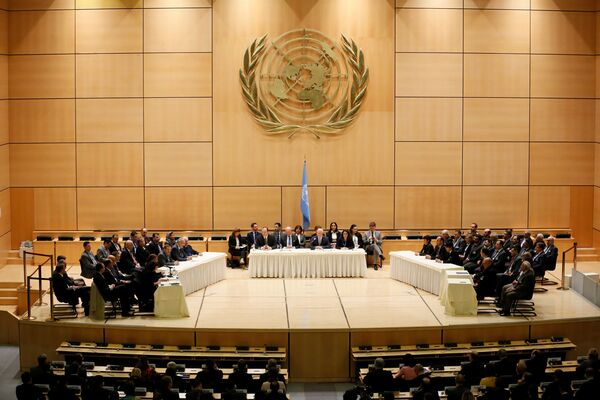
Speaking to Sputnik on February 26, Ebdulselam Eli, a representative of the Syrian Democratic Union Party (PYD) in Russia, opined that it is virtually impossible to solve the Syrian crisis without the Kurds.
"Resolving the Syrian crisis without the Kurds is impossible," he said. The Kurds "are self-sufficient and they have their own armed forces. [All stakeholders] need to find common ground with the Kurds. Otherwise Syria will not have a promising future."
"[Damascus] does not have enough forces to take the entire country under control and rule it," Eli said.
Eli noted that Turkey strongly opposes engaging the Syrian Kurds, most notably the PYD, in the political process.
Indeed, Ankara regards the PYD and its paramilitary wing — the Kurdish People's Protection Units (YPG) — as affiliates of the Kurdistan Workers' Party (PKK) which is outlawed in Turkey.
"However, there are forces that are against this, primarily Turkey," Eli underscored. "When Turkey is asked why Kurds who control 22 percent of the country are not taking part in the negotiations, Ankara says that the Kurdish National Council which is part of the Syrian opposition is present in Geneva. However, unlike the PYD, the Kurdish National Council does not really administer any areas in Syria. Turkey does not want to accept reality as it is."
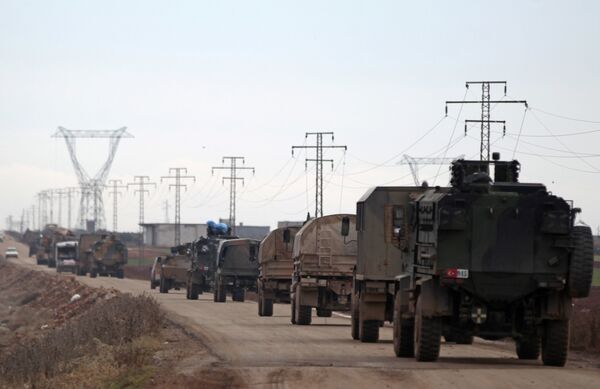
Ardaev quotes Semyon Bagdasarov, Head of the Center for Middle Eastern and Central Asian Studies, who bemoaned the fact that Ankara's tough stance towards the Syrian Kurds complicates the ongoing peace process.
"The Kurdish groups [on the ground] include up to 50 thousand armed men, plus about 20 thousand allied troops comprised of Assyrians, Armenians, Turkmen, Alawi and other ethnic and religious minorities," Bagdasarov pointed out.
"This is a real military force, which holds the key not only to 70 percent of the Syrian-Turkish border, but also to the water resources of the Euphrates River, which is crucial for Syria. Negotiations without [the Syrian Kurds] will prove futile," the expert believes.
